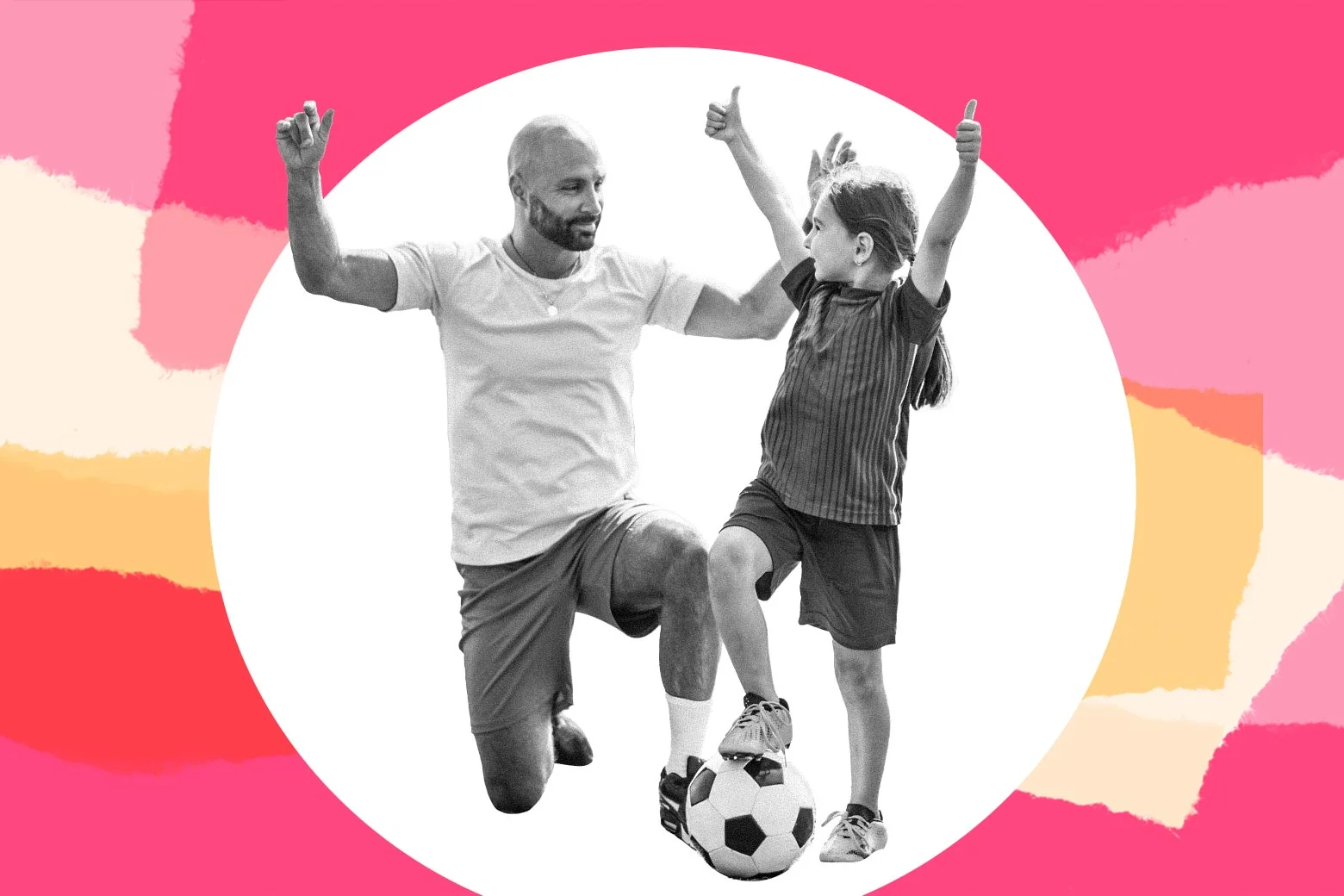Copyright Slate

Care and Feeding is Slate’s parenting advice column. Have a question for Care and Feeding? Submit it here. Dear Care and Feeding, My husband “Jack” and I have two daughters, “Lily,” 12, and “Emmy,” 14. Lily is outgoing and has been into sports almost from the time she could walk, much to Jack’s delight. He is very involved in coaching her soccer team and volunteers to take her and other students who go to her karate school all over for competitions. Emmy is the shy introvert who is into music and creative writing, which Jack could not care less about. Recently Emmy wrote a short story that won first place in a youth creative writing contest. Jack barely even acknowledged her achievement and grumbled about the “inconvenience” of having to drive out of town for the award ceremony. Emmy doesn’t complain much about her dad’s lack of enthusiasm for the things she enjoys, but I can see that it is increasingly bothering her as time passes. And it has affected her relationship with her sister because she sees how Jack favors her. What can I do to get my husband to understand that not sharing Emmy’s interests doesn’t give him a free pass to ignore her? —She’s Your Daughter, Too Dear She’s Your Daughter Too, Jack doesn’t have to be interested in creative writing, but he does need to be supportive of the positive endeavors of his children. That’s just table stakes for parenting. I think your best bet here is to focus on how Jack’s behavior is harming his relationship with Emmy and Emmy’s relationship with Lily. Ask him if he recognizes how Emmy feels. Tell him that he’ll regret their lack of relationship later in life, but that he still has limited time to fix it. It can be a struggle for extroverts to spend time with introverts. There’s probably some education you can do with Jack to make him understand Emmy as a person who is different from him. I assume that when he grumbled about driving out of town for the ceremony, you brought up the hypocrisy of such a statement given his extensive travel for Lily’s interests. If you didn’t, you should! Congress might think hypocrisy is dead, but that doesn’t mean we have to. Try swapping out and spending more time with Lily while he spends time with Emmy. Be upfront about why. At the very least, it will mean that Jack doesn’t have ammunition in an argument about being too busy with Lily to pay attention to Emmy. At best, he’ll come to see Emmy’s interests as valid in their own way, even if he doesn’t share them. Dear Care and Feeding, My wife “Raye” and I have a 4-year-old daughter, “Tillie.” Tillie has a birthday coming up early next month, and I think she’s ready for her first bicycle—but Raye is staunchly against it. My wife is convinced that our daughter will “end up dead” if we allow her to get a bike. I have pointed out that many of Tillie’s friends are already learning how to ride bikes, and that I was around her age when I got my first one, but it’s like talking to a wall. Raye’s response is that I was lucky and Tillie’s friends have been lucky, too. When I asked my wife at what age she would be comfortable with Tillie learning to ride a bike, she said she might be comfortable when she’s 10. Our daughter is really starting to feel left out over seeing her friends with bikes and not having one of her own, and I’m worried about her missing out on what should be a part of every kid’s childhood. What can I do to convince my wife that a bike for Tillie is a good thing? —Bicycle Battleground Dear Bicycle Battleground, Based on how much I love bikes, this question feels like bait. I will now chomp on this bait heartily. Waiting until your daughter is 10 for her to learn to bike will do her a disservice. Not only will it be harder to learn later, she will miss out on riding around with her friends. I have taught both my kids to ride bikes and a few friends’ kids, too. If they start with a balance bike, wear the right gear, and avoid streets with cars, it will be no less dangerous to learn than, say, hiking. Talk to your wife about the dangers she envisions and then work on how to reduce her anxieties. For example, if she’s scared about your daughter falling, get the right gear (helmet, gloves, pants, long sleeves). In my experience the majority of kid injuries from early biking are skinned knees and elbows. Start with a balance bike. If she’s worried about not being able to stop, you can get a balance bike with brakes! In fact, I’d recommend it since stopping with your feet becomes completely impractical once you have pedals. There have also been innovations in bike-brake technology in the last decade. My kids are too old to have had Guardian Bikes available, but friends with younger kids swear by them—their braking system stops more quickly and prevents stopping with just the front brake and going head over heels. Since your daughter is already turning 5, you may want to just start with a pedal bike with the pedals off instead of a balance bike that she’ll age out of in a year or two. If your wife is worried about cars (she should be! They’re awful!) assure her that your daughter won’t have unsupervised bike access and won’t be biking around cars. Teach your daughter about the dangers of cars and intersections. I taught my kids from an early age that bikes are like an invisibility cloak. Cyclists should never assume that a car can see them, even if they are looking directly into the driver’s eyes. They should never assume that a car will slow down for them or stop at a stop sign. You might also appeal to her sense of logic. If something is dangerous, but you’ll eventually do it, that doesn’t seem like a good reason to avoid learning it until later in life. In fact, it’s quite the opposite. Swimming is dangerous, so we start our kids young. If we don’t, all their friends are ripping around the pool having done it for years and swimming out to the deep end while your child is either stuck on the side or, even worse, deciding to risk it and try to keep up with them. Biking is less dangerous than swimming and also far more accessible. By teaching Tillie to bike at an early age, she’ll have confidence in her abilities and the knowledge to know what she’s capable of when she starts riding with friends. It’s better to have her learn how to deal with speed and turning when she’s young than to be struggling to keep up when she’s older. —Greg More Parenting Advice From Slate Our 6-year-old has a superpower that seems to blunt any consequences of punishment he receives: He just sleeps through it. He’s been doing this for about two years, and at first, we thought something was medically wrong. He gets between 10 and 11 hours of sleep a night on a very reliable schedule, and a full work-up by his pediatrician didn’t indicate any problems. She says he’s just found a creative way around things! At home or at kindergarten, any kind of time-out or time away from things he enjoys: He sleeps. Getting his tablet taken away? He sleeps. Time out for fighting with his sister? He sleeps.



